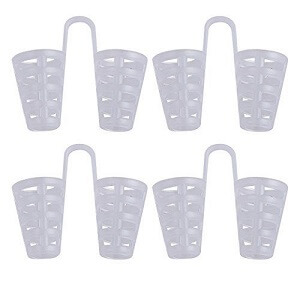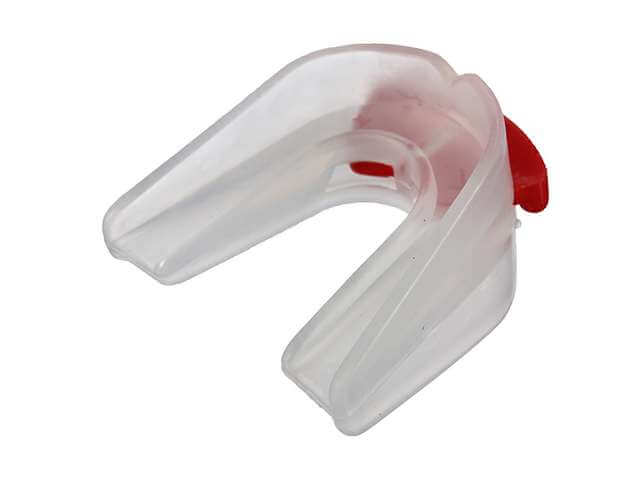Why Do I Wake Up With A Sore Throat?

Waking up with a sore throat may be a sign of snoring
It’s 6:00 am and you wake up with a sore throat. The first thought that comes to mind is that you may be coming down with a cold, but you don’t have time to deal with being sick. You have a very busy day at work, the kids have soccer practice after school and you have to spend the evening preparing for an important meeting tomorrow morning. Within the next couple hours, your sore throat simply disappears and everything returns to normal.
Does this scenario sound familiar? Each morning, millions of people wake up with a sore throat not knowing exactly what’s causing it. A sore throat in the morning is typically an indication that some type of throat irritation has occurred overnight. While there are several possibilities including Gastroesophageal Reflux Disease (GERD), snoring is often the culprit.
How Snoring Can Cause A Morning Sore Throat
 So, a sore throat that occurs only in the morning may be caused by snoring? How does this occur? There are actually a few explanations as to why snoring happens and how it causes a sore throat.
So, a sore throat that occurs only in the morning may be caused by snoring? How does this occur? There are actually a few explanations as to why snoring happens and how it causes a sore throat.
The first explanation is that for one reason or another, sinus passages become blocked. Common reasons for blocked sinus passages include seasonal allergies which cause inflammation, a sinus infection, nasal polyps, or a deviated septum. When this occurs, our bodies recognize that an alternative path for air to travel is needed. If the sinuses are clogged or obstructed, the mouth is called upon for back up. Throughout the night, the mouth hangs wide open and begins to dry out and become irritated. Air moving past a dry soft palate or uvula can cause this tissue within the airway to strike against each other, causing further irritation as well as the sound of snoring.
Another reason why snoring may be causing a sore throat is due to having poor muscle tone in the throat area. While asleep, the tongue and jaw both relax and fall backward, causing resistance within the airway. The effects are often compounded if a person consumes alcohol, smokes, or uses sedative prior to falling asleep which further relax the tongue and cause more of an obstruction. Furthermore, those who are overweight may find that extra fat around the neck causes further narrowing of the airway. Air that passes through a narrow airway will cause the tissues within the airway to collide. Those who snore due to an airway restriction sometimes sleep with their mouth open which causes the airway to dry out and become irritated.
Whether snoring is caused by obstructed sinuses or an obstructed airway, the end result is a dried out and irritated throat. The drier the airway becomes, the greater the intensity of snoring and morning sore throats become worse. It’s a vicious cycle that continues night after night.
5 Ways To Prevent A Sore Throat That Is Caused By Snoring
 While snoring is often the cause of a morning sore throat, this is not always the case. Since every individual’s circumstances may differ, it’s critical that you schedule an appointment with your doctor who can further evaluate chronic morning sore throat as well as any other symptoms that you may be experiencing alongside a sore throat. It’s possible that a sore throat may be an indication of not only snoring but Obstructive Sleep Apnea which requires treatment from a physician. There are also a number of other conditions that may cause a morning sore throat such as acid reflux. Because several possibilities do exist, a professional medical examination should be conducted.
While snoring is often the cause of a morning sore throat, this is not always the case. Since every individual’s circumstances may differ, it’s critical that you schedule an appointment with your doctor who can further evaluate chronic morning sore throat as well as any other symptoms that you may be experiencing alongside a sore throat. It’s possible that a sore throat may be an indication of not only snoring but Obstructive Sleep Apnea which requires treatment from a physician. There are also a number of other conditions that may cause a morning sore throat such as acid reflux. Because several possibilities do exist, a professional medical examination should be conducted.
If after visiting your doctor they agree that simple snoring is causing your morning sore throats, there are several methods that can be used to reduce snoring and keep your airway moist throughout the night.
Stay Hydrated
 One of the best ways to prevent your throat from drying out is to ensure that you are getting enough water each day. A surprising number of people spend their days dehydrated which can not only contribute to a dry mouth while asleep and ultimately snoring, but it can also cause numerous health problems. A lack of water causes the mucous membranes within your throat to dry out and become irritated.
One of the best ways to prevent your throat from drying out is to ensure that you are getting enough water each day. A surprising number of people spend their days dehydrated which can not only contribute to a dry mouth while asleep and ultimately snoring, but it can also cause numerous health problems. A lack of water causes the mucous membranes within your throat to dry out and become irritated.
Most of us live busy lives which makes staying hydrated a constant challenge. Make water a part of your daily routine by using these helpful tips.
Clear The Congestion
If snoring is being caused by sinus congestion, tackle the problem by clearing your sinuses. As mentioned, clogged sinuses cause mouth breathing and ultimately a dried throat, snoring, and a sore throat. Reduce the congestion and resume normal breathing through your mouth.
If seasonal allergies are causing congestion, consider using a nasal spray, decongestant or prescription drug to clear your sinuses. There are also other remedies such as the use of a vapor rub or perhaps run a dehumidifier. Also, consider the use of powerful essential oils such as eucalyptus.
Also, think about using a dehumidifier to help clear up congestion and lubricate the airway.
Nasal Strips or Nasal Cones

Nose cones can help to clear collapsed nasal passages
Another remedy that can assist with sinus congestion is the use of nasal strips or nasal cones. Nasal strips fit on the outside of the nose and attach to the skin. They essentially physically pull the nostrils open using the bridge of the nose for leverage which increases the volume of airflow. Nasal strips can only be used once, so a monthly supply of disposables may be necessary. Similarly, nasal dilators or nose cones achieve the same results but are placed inside of the nose to help open up the nostrils. Unlike nasal strips, dilators or cones can be used several times as long as good hygiene is practiced.
Try A Chinstrap
Chinstraps, often referred to as snoring chinstraps, can be a helpful tool that one can use to combat open mouth snoring. If your sore throat is being caused because your mouth hangs open at night, you may want to consider using a chinstrap. It is very important to mention that a chinstrap should only be used if your sinuses are free of obstruction. If your sinuses are clogged, you will need to allow your mouth to remain open throughout the night to ensure proper breathing so a chinstrap cannot be used.
A chinstrap is typically made from a neoprene material and wraps around the head and jaw to help hold the mouth closed while asleep.
Snoring Mouthpiece

Mouthpieces are a highly effective anti snoring tool
Snoring that originates within the airway, causing a morning dry throat in the morning can often be resolved using a snoring mouthpiece.
Snoring mouthpieces are one of my favorite anti-snoring products simply because they are easy to use and extremely effective. They fit inside of the mouth and hold the jaw and tongue forward which prevents restriction within the airway. Many mouthpieces come with holes at the front which allow some air to enter, so if you are a mouth breather this should not be an issue.
There are several different products on the market, so deciding which one to choose can become a chore. I put together a ranked list of mouthpieces base on personal experience which should help to make the decision easier.
A Summary Of Thoughts On Sore Throats Caused By Snoring
There are several possibilities as to why you may wake up with a sore throat in the morning, snoring being very likely. Before assuming that dry mouth and snoring is the cause of a morning sore throat, first speak with your doctor who can make this determination. If they determine that snoring is the cause, there are several remedies such as hydration, decongestants, nasal dilators, chinstraps or a mouthpiece that can help to prevent snoring and ensure that you wake up a sore throat free.
Share This Post:
